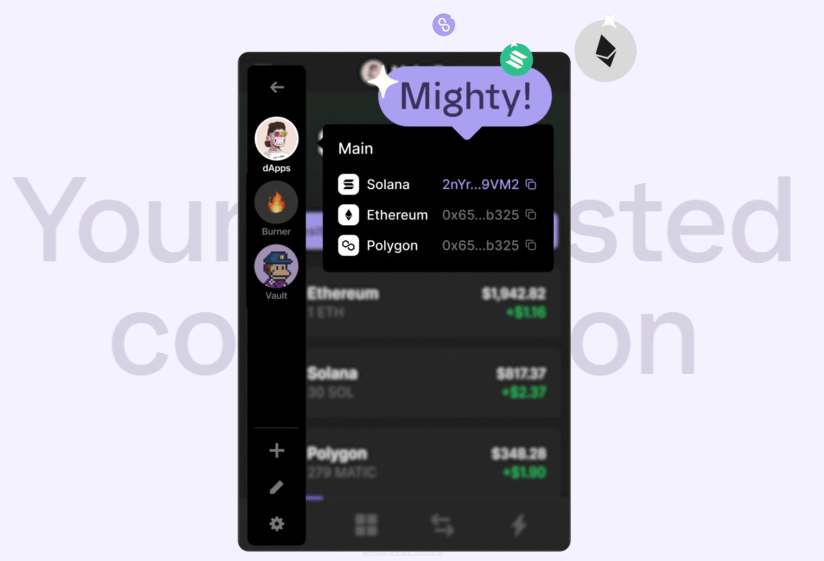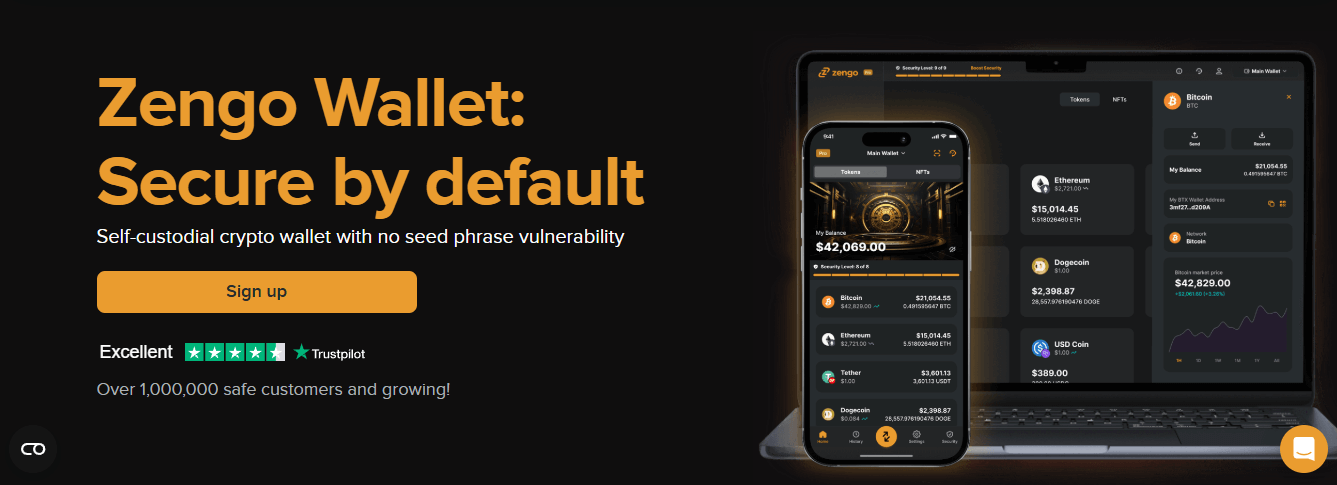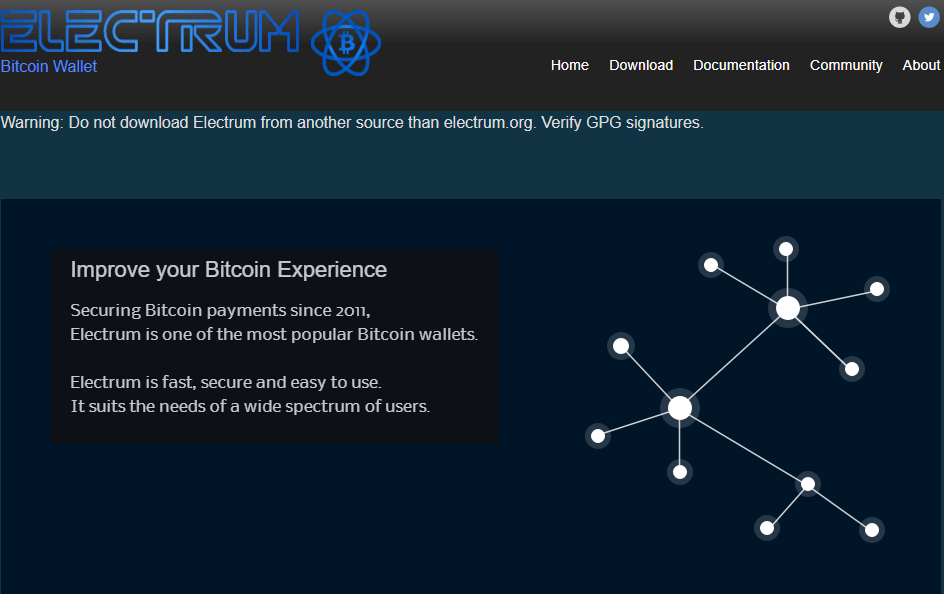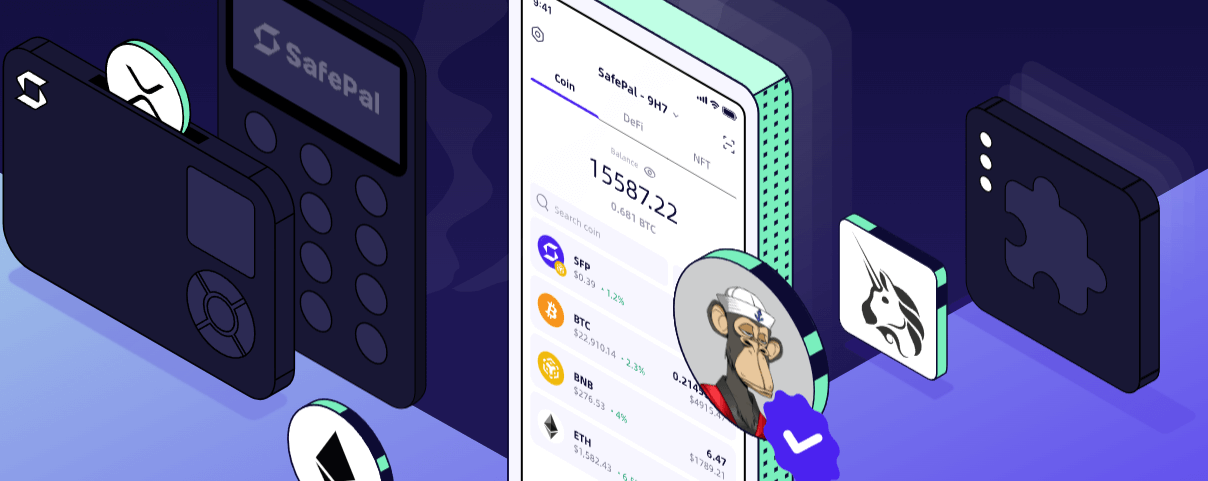A Beginner’s Guide to Non-Custodial Crypto Wallets: Best Picks for 2024-2025

Non-custodial wallets are becoming increasingly popular, and it’s easy to see why. With security concerns on the rise, more people want full control over their digital assets. This shift aligns perfectly with the decentralized spirit of Web3 and DeFi. When you factor in new rules, better DApp compatibility, and tech that’s getting smarter and easier, it’s no wonder these wallets are becoming so popular.
In 2023, the non-custodial wallet market was valued at $1.5 billion, and by 2031, it’s expected to hit $3.5 billion, growing at an 8% annual rate. There’s a wallet for everyone — whether you’re into software, mobile, desktop, or web wallets.
And if you’re into crypto, experimenting with DeFi, or managing NFTs, this review will give you all the details and highlight self-custody wallets that are worth considering.
1. NOW Wallet — Best Overall Non-Custodial Crypto Wallet
With NOW Wallet, users aren’t just storing their crypto — they’re holding the keys. Supporting over 50 cryptos and 15,000 tokens, this wallet makes sure users are in charge, avoiding the headaches of letting others control their keys. Plus, there is no mandatory registration or KYC for crypto-to-crypto operations, so users don’t have to give out any personal info, ensuring privacy in their transactions.
Thanks to its cross-chain swap option, NOW Wallet lets users easily exchange assets between multiple blockchains. One of the coolest features is its integration with the ChangeNOW exchange, so users can swap crypto right in the wallet without needing to sign up on any other platform.
Moreover, NOW Wallet makes it easy to earn passive income by staking popular cryptos like Tron (TRX), Binance (BNB), NOW Token (NOW), Cosmos (ATOM), Tezos (XTZ), and more. The wallet’s interface is super simple and easy to use, so even beginners can get started right away, and, at the same time, it’s got all the advanced features that experienced users look for.
Speaking of newcomers, it’s easy to buy crypto with fiat using NOW Wallet thanks to its integration with services like Simplex, Guardarian, or Transak, with a variety of payment options available. However, keep in mind that these fiat payment processors require KYC verification on their end.
Additionally, NOW Wallet supports NFTs, so users can manage both their crypto and collectibles in one place. For those into DeFi, the wallet connects to decentralized apps (DApps) via WalletConnect, enabling seamless access to lending, borrowing, and yield farming. Plus, with 24/7 customer support, almost any issues are quickly addressed.
All in all, NOW Wallet balances security, ease of use, and flexibility, and, with support for so many cryptos, it’s a top choice for both the ones just starting out or the ones who have been in the game for a while.
Pros
-
In-wallet swaps, including cross-chain transactions, without the need for registration or identity verification
-
Staking options for earning passive income
-
Easy fiat-to-crypto purchases with multiple payment options
-
NFT support
-
DApp connectivity
-
24/7 customer support for quick help when needed
Cons
Phantom — Best Solana Non-Custodial Wallet

Phantom Wallet is a non-custodial wallet supporting Solana, Ethereum, and Polygon blockchains. Phantom Wallet actually started out with Solana, which is why it lets users stake SOL tokens and earn rewards — perfect for anyone already holding Solana. It also makes managing assets easy by allowing token swaps right within the wallet and providing space for NFTs, so users can keep their crypto and collectibles all in one place.
Available on Android, iOS, and as a browser extension, Phantom is easy to use across devices. It also prioritizes security with a community-powered block list to track harmful tokens and NFTs, plus a simple way to burn any unwanted or malicious NFTs.
Obviously, the thing that makes Phantom great is its Solana staking, but this non-custodial wallet also offers support for multiple chains, and it is so simple to use, and that altogether is what earned it a solid second place on the list. However, the staking options are limited to Solana, and the wallet is still most optimized for that network, which may be a downside for those looking for a more balanced experience across all chains.
Pros
-
Solana staking support for earning rewards
-
In-wallet token swapping for easy transactions
-
Easy NFT burning
-
Available on Android, iOS, and as a browser extension
Cons
-
Limited to three networks (Ethereum, Polygon, Solana)
-
No support for advanced DeFi features or integrations
Zengo — Best Non-Custodial Wallet for for Avoiding Seed Phrase Vulnerabilities

Zengo has quickly become a favorite for those who want a crypto wallet that’s as secure as it is user-friendly. With over a million customers and zero hacks to date, it’s clear that its approach to security using MPC (Multi-Party Computation) instead of traditional seed phrases is a game-changer. Additionally, with 24/7 customer support just a tap away, help is never far if needed.
What sets Zengo apart is its versatility. Supporting over 180 assets, including Bitcoin, Ethereum, Polygon, and Dogecoin, it’s truly a multi-chain wallet. Beyond simple asset storage, Zengo allows users to buy, sell, swap, and connect to a range of Web3 dApps. NFT enthusiasts aren’t left out either, with built-in support to store, view, and use NFTs across different chains. Zengo really opens the door to the DeFi universe to its users by offering quick access to a huge range of dApps.
Instead of relying on vulnerable seed phrases, this self-custody wallet uses MPC technology, making accounts far more secure. The three-factor authentication system adds another layer of protection with encrypted biometric scans, email verification, and a unique recovery file, so that recovering an account is pretty much straightforward and reliable. Plus, the option to set up five separate wallets for different needs — like storing high-value assets or minting — keeps things organized and extra secure.
Pros
-
No seed phrase vulnerability
-
Strong security (3FA, biometric scans)
-
24/7 customer support
-
Up to 5 segregated wallets
-
Supports 180+ assets
Cons
Electrum — Best Non-Custodial Wallet for Bitcoin

Those dealing with Bitcoin typically want a wallet as secure and reliable as Electrum, offering full control and privacy. As a non-custodial wallet, it ensures that private keys are encrypted and never leave the users’ computer, keeping their funds secure. If anything goes wrong, users can easily recover their funds using a secret phrase, making it a forgiving option for those worried about losing access.
One of Electrum’s winning features is its speed. It works with servers that make Bitcoin transactions super fast, so everything is processed instantly. Plus, users have full control over their private keys and can easily move them between different Bitcoin wallets if needed.
The wallet is always ready to go, thanks to decentralized servers, meaning there’s never any downtime. This self-custody Bitcoin wallet allows users to keep their private keys offline with cold storage. It also has a cool feature that splits spending permissions across different wallets for extra protection. And if that’s not enough, Electrum is super customizable, with options to add third-party plugins or use a hardware wallet for even more control, although its interface would definitely use some fine-tuning.
Pros
-
Fast transactions with blockchain indexing
-
Full control over private keys, exportable to other wallets
-
No downtime
-
Cold storage and multisig for added security
-
Customizable with plugins and hardware wallet support
Cons
-
Outdated, not the sleekest interface
-
Limited to Bitcoin, no multi-crypto support
-
Requires some technical know-how
Safe Pal — Best Non-Custodial Wallet for Yield Aggregation and Security

SafePal could be the one for anyone looking for more than just a storage wallet. It’s actually really trying to get it all — whether it’s buying, selling, or trading crypto on the go, or turning a Chrome browser into a multi-chain wallet with ease. This wallet also lets users stake coins, explore DApps, and if extra security is a priority, the hardware option adds that layer of protection for their assets.
Speaking of SafePal’s staking options, users can easily stake in mining pools directly through the wallet, without having to mess with third-party apps. Plus, since SafePal has a built-in yield aggregator, this helps get the best possible interest rates while cutting down on high gas fees.
SafePal takes all the guesswork out of exploring decentralized apps. Whether users want to buy, collect, or sell NFTs, get into blockchain gaming, or even mine liquidity, it’s all possible thanks to the wallet’s broad asset support and cross-chain compatibility. And when it comes to security, SafePal doesn’t mess around, and also got EAL5+ certification, which is a pretty high level of security.
Pros
-
Integration with Binance Mini
-
In-wallet staking via mining pools with automatic yield aggregation
-
Available as a hardware wallet
-
Self-destruct mechanism in case of tampering
Cons
Conclusion
When it comes to keeping crypto secure, non-custodial wallets are definitely the way to go, but, with so many options out there, it can be tough to pick the right one. However, those looking for something that combines simplicity, security, and versatility, NOW Wallet stands out as one of the best choices. It’s got swapping coins and managing NFTs down to an art — no stress, just convenience.





